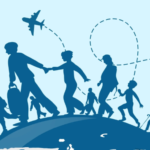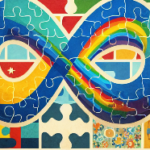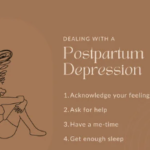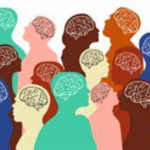Just for a moment, imagine being a parent in Nigeria, full of hope for your child’s future, only to realize that the educational system is ill-equipped to support them simply because they are on the autism spectrum. Autism Spectrum Disorder (ASD) is a developmental condition that affects communication, behavior, and social interaction.
It’s estimated that around one in every 160 children globally has ASD, but in Africa, the numbers remain unclear due to underdiagnosis and stigma. For many African families, particularly in Nigeria, the quest for inclusive education for children with autism is a journey full of hope, but also numerous obstacles.
You might already be aware of how the stigma and lack of awareness around autism have created barriers to inclusion, but there are growing efforts across the continent to address this issue.
In this article, we will dive into both the successes and the setbacks in the push for educational inclusion for children with autism in African schools, with a particular focus on Nigeria.
By understanding the progress being made and the challenges that remain, you can become part of the movement to ensure these children get the education they deserve.
The Growing Need for Inclusion: Autism on the Rise in Africa
If you or someone you know has a child with autism, you have likely encountered a limited understanding of this condition in African societies. In many parts of Africa, including Nigeria, cultural misconceptions still dominate discussions around autism.
At the website of the National Library of Medicine, there is a publication, titled ‘The Unmasking of Autism in South Africa and Nigeria’. In the publication, it was highlighted that there are several challenges, such as “lack of awareness, limited access to professional support and diagnostic tools, and cultural considerations in establishing the autism prevalence in the African region compared to other parts of the world.” All these are good reasons to call for inclusiveness in Autism in African countries.
It is good also to state that some communities mistakenly view autism as a form of witchcraft, leading to the isolation of affected children. Because of these misconceptions, many families don’t seek help early, and their children go undiagnosed for years.
The rise in autism diagnoses is partly due to improved awareness and healthcare access, but African educational systems have been slow to catch up with the growing number of neurodiverse students.
Across the continent, there’s an urgent need for policies that prioritize Special Education Needs (SEN) and provide funding for the resources needed to include children with autism in mainstream schools.
Success Stories: Where Inclusion is Thriving
Despite the many challenges, you’ll find pockets of success where children with autism are thriving in inclusive classrooms. Some schools in Nigeria and across Africa have embraced inclusive education, offering tailored support for students with autism and other special needs.
One such example is the Patrick Speech and Languages Centre in Lagos, which is pioneering autism-specific education in Nigeria. Founded by Dr. Dotun Akande, the school provides individualized education plans (IEPs), sensory rooms, and specialized staff trained to support children with autism. Schools like this are blazing the trail for what true inclusion can look like in Africa.
You might also be interested in knowing that some governments are starting to take steps toward inclusion. In South Africa, for instance, government-led initiatives like the White Paper 6 on inclusive education are aimed at making mainstream schools more accessible for children with disabilities.
This policy encourages the integration of neurodiverse students into regular classrooms, with the support of special education services. While this policy has faced implementation challenges, it serves as a model for other African nations, including Nigeria.
It’s also important to note that innovations in technology are helping bridge the gap between traditional education and inclusive learning. Assistive technology, such as communication apps tailored for non-verbal children with autism, is gaining traction across Africa.
These tools, often accessible via tablets or smartphones, provide children with alternative ways to communicate and learn.
If you’re a parent or educator, you can take advantage of these tools to enhance learning experiences for children with autism, even in resource-limited settings.
The Barriers: Challenges in Achieving Full Inclusion
For every success story, however, countless setbacks continue to hinder full inclusion. One of the most significant barriers is socioeconomic. In many African countries, including Nigeria, special education services are prohibitively expensive.
Private schools that offer tailored programs for children with autism often charge fees that are far beyond the reach of most families. Public schools, on the other hand, are typically underfunded and lack the resources to accommodate neurodiverse students.
Compounding these issues is the severe shortage of trained special education teachers across Africa. Even in countries like Nigeria, where autism awareness is slowly increasing, most schools lack teachers with the knowledge and skills to manage autism-specific behaviors and learning challenges.
According to a report by UNESCO, less than 1% of African teachers have received training in special needs education.
According to the Director-General of UNESCO, Audrey Azoulay, “To rise to the challenges of our time, a move towards more inclusive education is imperative.” Learn more at the Global Education Monitoring (GEM) Report 2020 on the UNESCO website.
The point is that without this expertise, teachers are often overwhelmed by the prospect of having an autistic child in their classroom, and as a result, many schools turn these children away.
Steps Forward: Practical Strategies for Overcoming the Setbacks
So, what can be done? You might be asking how we can turn these challenges into opportunities for real change. One of the most important steps is advocating for government policy reform. Governments across Africa, particularly in Nigeria, need to prioritize inclusive education in their national education agendas.
This includes not only setting aside funds for special education but also implementing laws that protect the rights of children with autism to access mainstream education.
In Nigeria, efforts are being made to include disability rights in the Universal Basic Education (UBE) framework, but more work is needed to ensure that these policies translate into action at the grassroots level.
Community engagement is another critical piece of the puzzle. You have the power to shift cultural attitudes by raising awareness about autism within your community. When families, religious leaders, and community members understand that autism is not a curse or a behavioral issue, but a neurodevelopmental condition, they become more willing to support inclusive education.
Schools and educators need support in the form of training and resources. If you’re a teacher or school administrator, seek out professional development opportunities that focus on inclusive education practices.
Several international organizations, such as Autism Speaks, offer online training modules and resources specifically designed for educators in low-resource settings. Additionally, fostering collaboration between schools, parents, and special education experts can lead to better outcomes for children with autism.
When educators are empowered with the right tools and knowledge, they can create classroom environments that cater to the diverse needs of all students.
Conclusion: A Call to Action
While there have been undeniable strides toward educational inclusion for children with autism in Africa, significant barriers remain. As a concerned African, you can help advocate for policies, resources, and cultural shifts that ensure every child, regardless of their neurodiversity, has access to quality education.
The successes we see today in some African schools show that inclusion is possible but achieving it on a wider scale requires continued effort from governments, communities, and individuals like you.
It’s time for all of us to work toward an Africa where children with autism are not left behind but instead are allowed to learn, grow, and thrive within inclusive school environments.



















